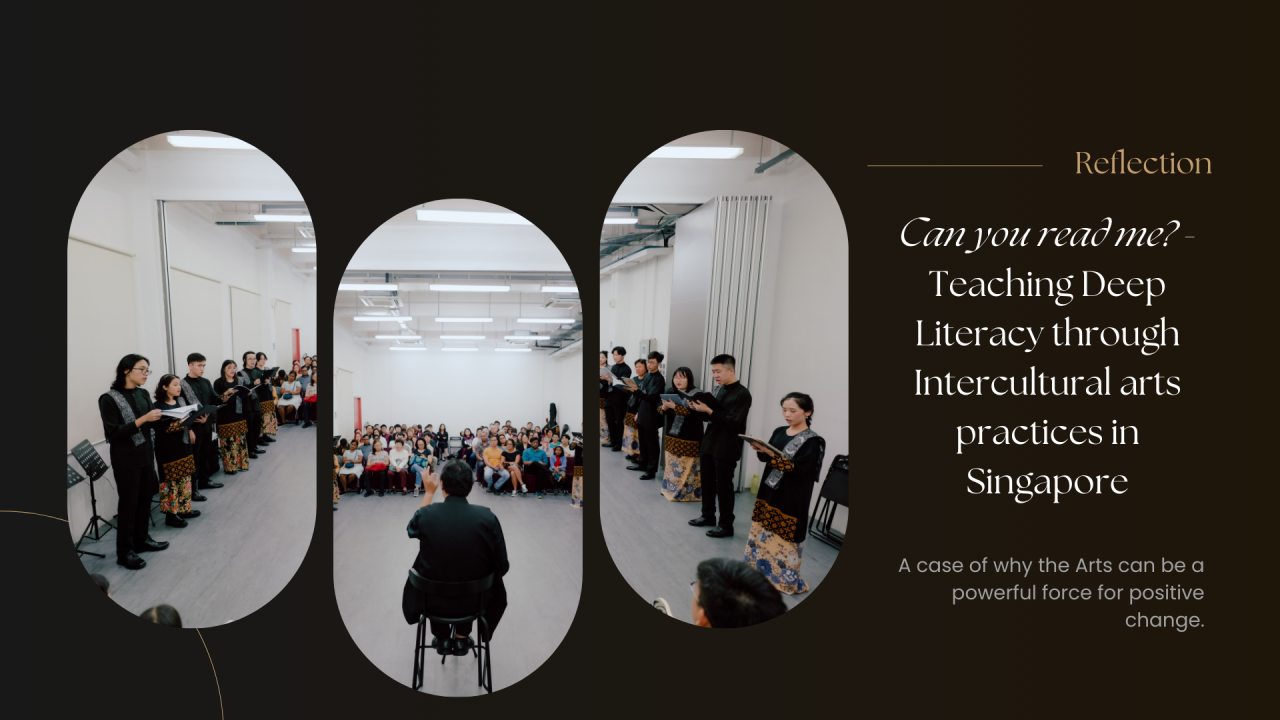Can you read me? - Teaching Deep Literacy through Intercultural Arts Practices in Singapore
Singapore is in a good position to make headway in developing said competencies. This can be done through embracing the arts and culture in Singapore. More specifically, I'm going to focus on the intercultural movements in the arts and how it can help with developing our deep literacy.

by Dr. Shahril Salleh
22 May 2025--During lunch today, Faris Ridzuan shared how he felt that Singaporeans are losing their deep literacy competency. He qualified that deep literacy is not just about understanding a written text on a profound level, going beyond mere comprehension to engage with it critically and thoughtfully. Rather, deep literacy should also be about reading people, exchanges, points of view, and even cultures. He asked me what my thoughts were, and I did tell him then that I didn't have a ready answer for him.
Now that I've had time to digest what he said, I do have two things to say in response to his statement. Firstly, I do think that the erosion of deep literacy isn't just a Singaporean thing, it's becoming a worldwide phenomenon. Cultural and Literary studies scholars, such as Maryanne Wolf in her book "Reader, Come Home" have spoken about how technology and the rise of mobile broadband have irrevocably changed the way we think and view the world. Adam Garfinkle, an American historian and political scientist, had this to say,
Deep literacy has wondrous effects, nurturing our capacity for abstract thought, enabling us to pose and answer difficult questions, empowering our creativity and imagination, and refining our capacity for empathy. It is also generative of successive new insight, as the brain's circuitry for reading recursively builds itself forward. It is and does all these things in part because it touches off a "revolution in the brain," meaning that it has distinctive and describable neurophysiological consequences. Understanding deep literacy as a revolution in the brain has potential payoffs for understanding aspects of history and contemporary politics alike. Deep reading has in large part informed our development as humans, in ways both physiological and cultural.
(Taken from his article, which can be found here.)
This brings us to my second point. While we are globally/collectively suffering from this depreciation of deep literacy, I do feel that Singapore is in a good position to make headway in developing said competencies. This can be done through embracing the arts and culture in Singapore. More specifically, I'm going to focus on the intercultural movements in the arts and how the arts can help with developing our deep literacy.
Intercultural exchange allows us to read widely from multiple points of view.
In today’s fast-changing world, being able to thrive amidst chaos and uncertainty means paying attention to the social and cultural shifts happening around us. I would argue that Singapore’s arts and culture scene has always been the mirror to reflect these changes. In fact, the way we approach inter-faith and intercultural exchanges in the arts is often a counterpoint to global events and local realities. These timely exchanges become interventions that help guide our society towards being more compassionate and more understanding—and the impact is already visible.
I see three big shifts that are already happening in Singapore.
1. Interfaith and Intercultural Narratives Are Gaining Ground
Recent data shows that in 2023, over 18% of marriages in Singapore were inter-ethnic, and nearly half involved partners from different religious backgrounds. These numbers are more than statistics—they are stories of real people building lives across boundaries. The arts are starting to reflect this. In previous years, Vox Camerata has organized the Sojourners Festival, which highlights the cultural forms of ethno-religious minorities in Singapore. This year, we are organizing the Musica Intimae: Intersections Festival which centering the lived experiences of bi-racial and bi-religious couples, using storytelling, music, and multimedia to highlight both the challenges and the beauty of blended identities.
2. Community-Based Arts Are Driving Social Connection
Research by Matarasso (1997) and Kay (2000) has shown that community arts can bridge divides and foster inclusion. In Singapore, we see this in projects that bring together people from different backgrounds to create, perform, and reflect. These aren’t just performances—they are platforms for dialogue. For example, during last year's Sojourners Festival, we used Forum Threatre as a medium for people to share vignettes of personal stories and engage the audiences to think deeply about alternative ways of approaching the tensions presented in the form of the anti-play. This exercise of finding solutions as a group allows the participants to have their old stereotypes fade and allow empathy to grow within themselves.
3. Technology Is Making Exchange More Personal
New formats—like self-guided audio exhibitions styled as phone calls—are making it easier for audiences to connect with stories on their own terms. This personal, intimate approach helps break down barriers and invites deeper reflection. At recent tours and exhibitions I’ve attended, visitors often linger, listening to the voices of others, and leaving with a new sense of understanding.
Why intercultural work is necessary to develop Deep Literacy
Intercultural work allows us to navigate sensitive topics, such as talking about race and religion. This can be difficult, especially when we as a society have not developed a syntax to talk about differences in respectful and constructive ways. There is always a risk of misunderstanding or backlash. But silence is not the answer. We need to create safe spaces where people can share honestly.
We also find that younger Singaporeans themselves have different positionalities from their parents, and many of them see the intercultural reality as more tangible to them than people who are older than them. As such, they are interested in stories that reflect the real diversity that they experience in their lives. Engaging them means moving beyond stereotypes and showing the complexity of modern life.
While it's a challenge to measure or quantify the effect of arts-based dialogue, it allows greater flexibility in eliciting understanding and showcasing one's deep literacy capabilities. Using the arts as a means to collect qualitative feedback—stories, testimonials, and community response—can be just as valuable as numbers. The best way to test our deep literacy is for one to share stories of others that convey the same essence irrespective of the words or language one would use.
A fluency in deep literacy allows better social policies to be written and administered. When arts projects collect and share authentic stories, they can help inform both policymakers and society at large about issues and challenges. This understanding and empathy then allow us to foster and shape a more inclusive society.
Vox Camerata's work and the embodiment of Deep Literacy
Vox Camerata is deeply committed to developing deep literacy, and our upcoming Musica Intimae: Intersections Festival embodies that. Our work goes deeper than just putting up performances. We start by listening. We talk to real couples from different ethnic and religious backgrounds. We ask about their lives, not just the big moments, but the small daily choices. We use these stories as the core of our festival.
We don’t guess what people feel. We collect real stories through interviews and group discussions. We work with researchers and community partners. We review books and articles to understand the bigger picture. This mix of real voices and research means our festival isn’t just a show—it’s a record of lived experience. We focus on four milestones: courtship, commitment, children, and commemoration. Each story is personal. Each one shows how couples manage differences, raise children, and remember those they’ve lost.
All this will culminate in the festival proper happening from the 26th to the 30th of November 2025 at Aliwal Arts Centre. There will be three parts to our festival- an exhibition with an accompanying audio guide, a performance offering of music and the spoken word, and finally an unconference. Our exhibition uses audio guides styled like phone calls. Visitors hear stories in the couple’s own words. This makes the experience personal and direct. You don’t just read about these lives—you listen to them. We also end the festival with an unconference. This is not a panel or lecture. It’s a space where anyone can share ideas and ask questions. We want real conversations, not just performances.
In short, here's the framework that Vox Camerata uses in our work:
- Listen First: We start with real stories from the community. We use interviews, focus groups, and written records to understand lived experiences.
- Collaborate Widely: We are always on the lookout to partner with community groups, researchers, and other artists to broaden our reach and deepen our impact.
- Embrace Technology: We try to use digital tools to make stories accessible and engaging. We're experimenting with audio guides, virtual tours, and social media and incorporating them into our festival.
- Be Transparent: We share our process and our findings openly. We always invite feedback from trusted partners and supporters and are always ready to adapt suggestions where possible.
- Prioritise Inclusion: The core of our work is to reflect the diversity of Singapore. A lot of this looks like us reaching out to underrepresented groups and making space for new voices.
Vox Camerata’s approach is simple: listen first, then share. We don’t speak for others. We help people speak for themselves. That’s why our work feels real.
Looking Forward
Innovation and adaptability are essential values in the intercultural arts space. As Singapore’s social fabric grows more complex, the arts have a unique role to play in strengthening our deep literacy which in turn will help us understand each other. Being Deep Literate means that one stays open to other cultures and practices, is curious about our neighbours and friends, and is responsive to the needs of others who are not from our communities. By practicing deep literacy, we can ensure that our work not only reflects but also shapes the society we want to live in.
